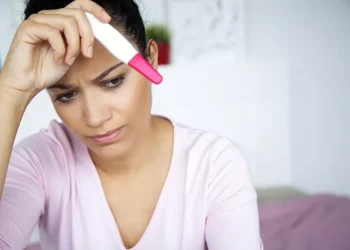For many couples, the journey to parenthood can sometimes be longer than anticipated. While medical interventions are available, many prefer to start with natural methods to increase their chances of conceiving. This article explores various strategies and lifestyle changes that can help you get pregnant faster naturally.
See Also: Can You Get Pregnant if Your Partner Has a Micropenis?
Understanding Your Menstrual Cycle
Track Your Cycle
Knowing your menstrual cycle is crucial. A regular cycle typically lasts between 21 to 35 days. Start by noting the first day of your period and track it over a few months. There are several apps available that can help you keep track of your cycle.
Identify Your Ovulation Period
Ovulation is the release of an egg from one of your ovaries. This is your most fertile period. Typically, ovulation occurs around 14 days before your next period. For a more precise method, you can use ovulation predictor kits (OPKs), which detect the surge in luteinizing hormone (LH) that precedes ovulation.
Lifestyle Changes to Improve Fertility
Maintain a Healthy Weight
Both underweight and overweight women can experience irregular menstrual cycles, which can affect ovulation. Aim for a Body Mass Index (BMI) between 18.5 and 24.9. This range is associated with the highest fertility rates.
Eat a Balanced Diet
A nutrient-rich diet supports overall health and reproductive health. Focus on consuming:
- Whole grains: Brown rice, whole-wheat bread, and oats.
- Lean proteins: Chicken, fish, tofu, and beans.
- Fruits and vegetables: These provide essential vitamins and antioxidants.
- Healthy fats: Avocados, nuts, seeds, and olive oil.
Avoid Processed Foods and Sugars
Processed foods and sugars can lead to inflammation and insulin resistance, which can negatively affect ovulation.
Stay Hydrated
Drink plenty of water. Dehydration can affect the quality of cervical mucus, making it harder for sperm to reach the egg.
Exercise Regularly
Regular, moderate exercise helps maintain a healthy weight and reduces stress. However, avoid excessive exercise as it can disrupt menstrual cycles and ovulation.
Limit Caffeine and Alcohol
High caffeine intake (more than 300 mg per day) and excessive alcohol consumption can reduce fertility. Stick to one cup of coffee per day and limit alcohol intake.
Timing and Frequency of Intercourse
Have Regular Intercourse
For the best chance of getting pregnant, have intercourse every two to three days throughout your cycle. This ensures that sperm is always present in the reproductive tract.
Focus on the Fertile Window
The fertile window is the five days leading up to and including the day of ovulation. During this time, try to have intercourse at least every other day.
Post-Intercourse Positioning
While there’s no scientific evidence that certain positions increase the likelihood of conception, staying in bed for 10-15 minutes after intercourse can help sperm travel towards the egg.
Managing Stress
Practice Relaxation Techniques
Stress can affect hormone levels and ovulation. Incorporate relaxation techniques such as yoga, meditation, and deep breathing exercises into your daily routine.
Take Time for Self-Care
Engage in activities that you enjoy and that help you relax, whether it’s reading, taking a walk, or spending time with loved ones.
The Role of Supplements
Prenatal Vitamins
Start taking prenatal vitamins before you conceive. Look for vitamins that include:
- Folic Acid: At least 400 mcg daily to reduce the risk of neural tube defects.
- Iron: To support increased blood volume during pregnancy.
- Vitamin D: Essential for bone health and immune function.
- Calcium: To help build your baby’s bones and teeth.
- Omega-3 Fatty Acids: Support brain development.
Consult Your Doctor
Before starting any supplements, consult with your healthcare provider to ensure they’re right for you and to discuss appropriate dosages.
Avoid Environmental Toxins
Reduce Exposure to Chemicals
Certain chemicals found in plastics, pesticides, and personal care products can disrupt hormones and affect fertility. Use glass or stainless steel containers instead of plastic, choose organic produce when possible, and opt for natural personal care products.
Avoid Smoking and Recreational Drugs
Smoking and the use of recreational drugs can impair fertility in both men and women. If you smoke, seek help to quit.
Understanding Male Fertility
Healthy Lifestyle for Men
Male fertility is equally important. Encourage your partner to:
- Maintain a Healthy Weight: Obesity can affect sperm quality.
- Eat a Balanced Diet: Rich in fruits, vegetables, lean proteins, and whole grains.
- Exercise Regularly: Moderate exercise improves overall health and sperm quality.
- Limit Alcohol and Avoid Smoking: Both can reduce sperm count and quality.
- Avoid Heat Exposure: Excessive heat, such as from hot tubs or laptops on laps, can reduce sperm production.
Consider Supplements for Men
Certain supplements can support male fertility:
- Zinc: Essential for sperm production.
- Selenium: Protects sperm from oxidative damage.
- Vitamin C and E: Antioxidants that improve sperm health.
- Coenzyme Q10: Enhances sperm motility.
Recognizing When to Seek Help
Know When to Consult a Specialist
If you’ve been trying to conceive for over a year (or six months if you’re over 35) without success, it might be time to seek help from a fertility specialist.
Be Open to Testing
A specialist may recommend tests to determine the cause of infertility. These can include:
- Hormonal Tests: To check for hormonal imbalances.
- Ultrasound: To examine the ovaries and uterus.
- Semen Analysis: To evaluate sperm count and quality.
Stay Positive and Informed
While the journey to conception can be challenging, staying positive and informed can help you make the best decisions for your reproductive health.
Conclusion
Boosting your chances of getting pregnant naturally involves a combination of understanding your menstrual cycle, making healthy lifestyle choices, managing stress, and knowing when to seek medical advice. By tracking your cycle, maintaining a balanced diet, staying hydrated, exercising regularly, and timing intercourse correctly, you can improve your fertility. Additionally, minimizing exposure to environmental toxins and supporting male fertility are crucial steps. If you find that you’re struggling to conceive, consulting a fertility specialist can provide you with the guidance and support you need. Remember, patience and persistence are key, and with the right approach, you can enhance your chances of achieving a healthy pregnancy naturally.
Related Links:



























